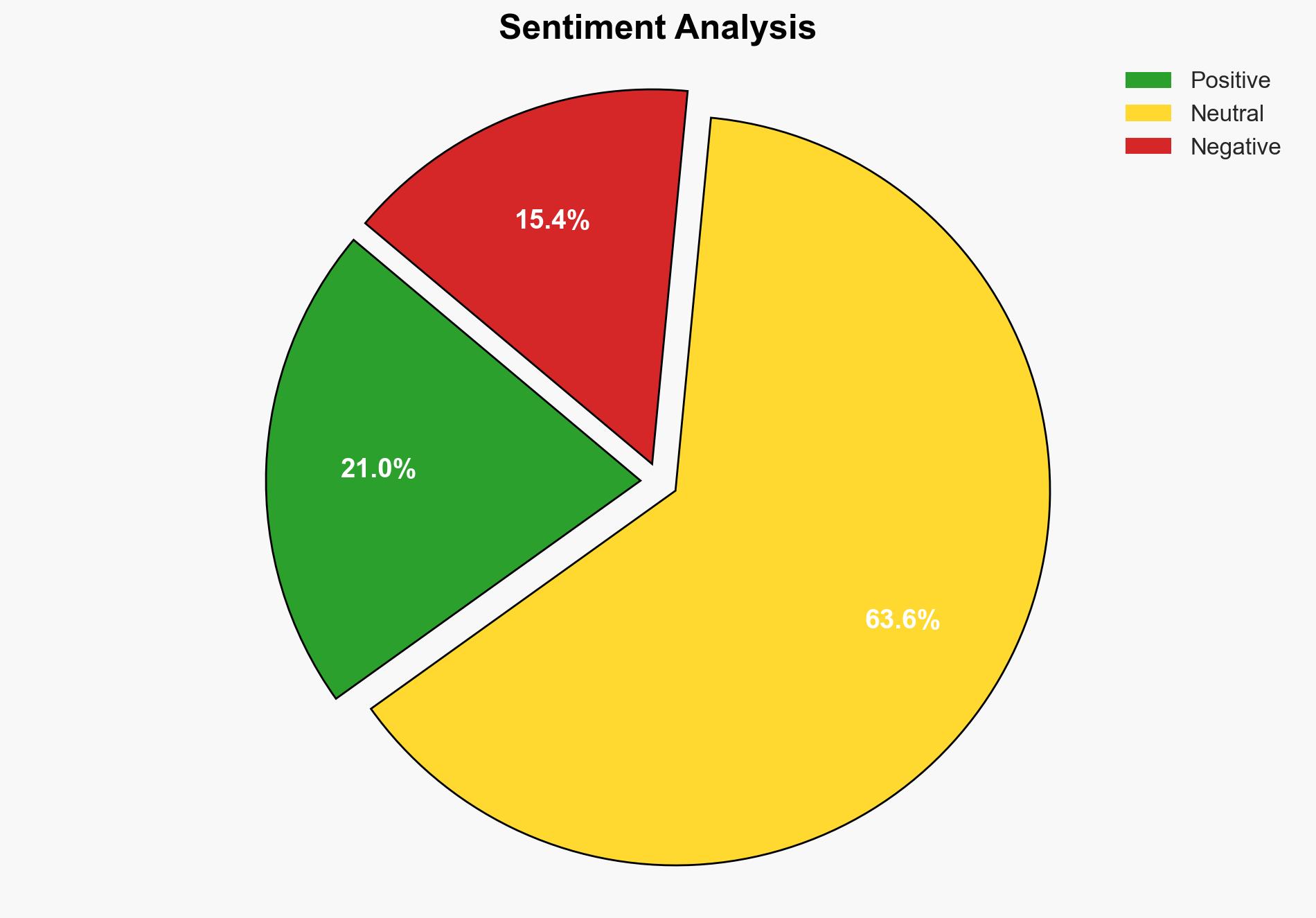Is South Sudan on the brink of another civil war – DW (English)
Published on: 2025-03-27
Intelligence Report: Is South Sudan on the brink of another civil war – DW (English)
1. BLUF (Bottom Line Up Front)
South Sudan is facing a critical juncture as tensions rise between key political figures, threatening the fragile peace established by the power-sharing agreement. The arrest of Riek Machar and subsequent political maneuvers by Salva Kiir have escalated the risk of renewed conflict. The international community, including Germany, has responded by reducing diplomatic presence, signaling the severity of the situation. Immediate intervention is required to prevent a humanitarian crisis and potential civil war.
2. Detailed Analysis
The following structured analytic techniques have been applied for this analysis:
General Analysis
The power-sharing agreement in South Sudan is under severe strain due to political and ethnic tensions. The dismissal of Riek Machar loyalists and the reshuffling of the cabinet by Salva Kiir have intensified mistrust within the unity government. The recent military actions by the “White Army,” allegedly linked to Machar, further complicate the situation. Ethnic divisions, primarily between the Nuer and Dinka groups, exacerbate these tensions, with socio-economic disparities fueling unrest. The involvement of neighboring countries, such as Uganda, indicates a potential regional spillover.
3. Implications and Strategic Risks
The escalating conflict poses significant risks to national security and regional stability. The potential for civil war threatens to displace millions, worsening the humanitarian crisis. Economic interests, both local and international, are at risk due to disrupted oil production and trade routes. The ethnic and political divisions could lead to prolonged instability, undermining efforts for peace and development in South Sudan.
4. Recommendations and Outlook
Recommendations:
- Engage in diplomatic efforts to mediate between Salva Kiir and Riek Machar, emphasizing the importance of maintaining the power-sharing agreement.
- Increase humanitarian aid and support for displaced populations to mitigate the immediate humanitarian crisis.
- Encourage regional actors to play a constructive role in de-escalating tensions and preventing external military involvement.
Outlook:
In the best-case scenario, diplomatic interventions succeed in restoring trust within the unity government, averting civil war. In the worst-case scenario, the conflict escalates into full-scale war, leading to widespread displacement and regional instability. The most likely outcome involves continued tensions with intermittent violence, requiring sustained international engagement to manage the crisis.
5. Key Individuals and Entities
The report mentions significant individuals and organizations but does not provide any roles or affiliations. Key figures include Salva Kiir and Riek Machar. The involvement of the “White Army” and the international community, including Germany and Uganda, are also highlighted as critical entities in the unfolding situation.





